If you use lemons frequently for juicing, tea or making lemonade, you likely have lots of leftover lemon halves and might be wondering how to reuse lemons instead of sending them to the landfill.
In our house, we go through at least one lemon each day when I make my morning green smoothie – two if my wife also makes one. Right now, I’m only using the juice from the lemon, but I’m considering including more of the pulp – or even a little peel – to reduce waste and see how it affects the flavor.
In the meantime, I have at least one whole, leftover lemon to somehow reuse every day. While most of them are still going in my compost bin, I have been trying some new ways to reuse lemons after I have juiced them. So I thought I would share them with you...
18 Uses for Lemons After Juicing Them
1. Add them to your compost bin.
Used lemons and lemon peels can be added to your compost bin to provide you with nutrient-rich compost for use in your vegetable garden. However, you do not want to add too much citrus to your compost pile, so this option is best for folks who occasionally have some leftover lemons.
2. Slice the halves and use them in tea.
Although you may have already juiced your lemon halves, they likely still have a bit of juice left in them. If so, you can slice the halves and keep them in a mason jar or other glass container in your refrigerator to use in your tea throughout the day.
3. Deodorize your refrigerator with used lemons.
If there is still some pulp left in your lemons, you can simply set the used lemon halves in the refrigerator to remove odors.
4. Deodorize your litter box area.
I live with five cats, so we are always happy to find new ways to keep our cat room odor free. Aside from constantly cleaning multiple litter boxes, we also reuse lemons by placing the leftover lemon halves in a bowl near the cat boxes.
5. Deodorize your recycling bin or trash can.
You can also reuse leftover lemons by placing some slices in the bottom of your recycling bin or trash can to ward off odors. Just remember to change them out regularly, since they will decompose.
6. Deodorize and kill germs on your cutting boards.
This is one of my favorite uses for lemons – mostly because it is so easy and I always have a cutting board out right at the moment when I make my morning juice and end up with two lemon halves to somehow reuse. I don’t generally notice much of an odor coming from my cutting boards, but I do chop a lot of garlic and onions, so I’m sure the lemons are helping.
All you do is take one of your lemon halves and rub it (cut side down) all over the cutting board. Wait for a few minutes before rinsing and drying your cutting board to let the lemon’s antibacterial qualities work their magic.
7. Clean your microwave.
I usually clean my microwave by microwaving a bowl of vinegar, and then wiping it down with a rag. However, one day I had a couple of lemon halves sitting on the counter and wondered if it might work just as well. After all, lemons are used for all kinds of cleaning purposes, so it made sense that they might also work for this.
To clean your microwave with leftover lemons, simply place them in a microwave-safe bowl about half filled with water and microwave it for about thirty seconds. Carefully remove the bowl and use a rag to wipe down your microwave.
This also works to deodorize your microwave.
8. Remove hard water stains and soap scum with lemons.
We have hard water and we have decided not to install a water softener. So, while that means that we, our furry friends and our plants can all enjoy using water right from the tap, it also means that our fixtures get some serious hard water stains. I have not found a perfect solution for this, but my leftover lemons do help. They are also particularly good at just general cleaning of my stainless steel kitchen sink.
9. Clean and shine chrome fixtures.
Another of the many uses of lemons is to clean and shine chrome fixtures around the house. To do this, you just need to rub the lemon all over the kitchen or bathroom fixture – which may include a bit of scrubbing if you have hard water – then rinse and dry with a soft cloth or rag.
10. Shine your stainless steel silverware.
For some reason, my stainless steel silverware gets spots on it, which I’m pretty sure are rust spots. I have used aluminum foil to scrub these spots off before, but lately I have been trying a little salt and lemon, which seems to do the trick. I just sprinkle some salt on the spot, and then scrub it with one of my juiced lemons.
11. Clean your coffee pot.
Long, long ago when I worked in a restaurant, we used to put salt, ice and lemon wedges in glass coffee pots, swish it around for a couple of minutes, and then rinse them out and let them air dry. This helped to sanitize them and was great for getting that pesky brown ring that always seems to form about halfway up the side of the pot.
Toss your used lemons in a pot of water, bring it to a boil, and then set it to simmer for a few hours on the stove. This natural deodorizer will freshen the air while allowing you to get a second use out of your lemons. You can also do this on a stove used to heat your home by placing the lemon pieces in water in a cast iron kettle or pot.
13. Deodorize your garbage disposal.
This is an oldie but goodie and is worth mentioning – just in case you have not yet heard of this household use for lemons. All you need to do here is drop your leftover lemon pieces in your garbage disposal to be ground up next time you turn it on. Keep in mind that your garbage disposal may not be able to handle lemon halves, so you may need to chop them up smaller before dropping them into the disposal.
14. Ward off ants.
I have only seen this used for ants, but I have heard that it also works for fleas. All you need to do is slice up your used lemons and scatter them around anywhere ants might be coming inside your house, such as doorways and windowsills. You can also scatter them outside around food prep areas or entertaining areas to keep ants away.
15. Make lemon twists for water or cocktails.
Slice off the peel, toss the pulp in your compost bin, and slice the peel into thin strips. You can then save these strips to use as lemon twists to garnish cocktails later that night or to make your water bottle look extra fancy throughout the day.
Bartending helped pay for my undergrad degree, so you can trust me when I tell you that twisting the rind to release the citrus oil -- and then rubbing it around the rim of a cocktail glass before placing it inside or on the edge as a garnish – can do amazing things for a drink.
16. Make infused water.
While we are on the topic of enhancing drinks with lemons, it is a good time to mention that you can also make lemon-infused water with your leftover juicing lemons. Simply slice your used lemon halves thinly, place them in a mason jar or glass pitcher, fill the jar or pitcher with water and put it in the fridge for a few hours.
You can also make lemon-infused water in a drink dispenser by adding water, sliced lemons and ice, which you can then use as your drinking water throughout the day or for serving guests. If you are not a huge fan of water, you might want to try adding lemons to water and leaving it to infuse overnight in the fridge for a refreshing, flavored drink to enjoy the next day.
17. Heal rough or cracked heels.
If cracked heels are an issue for you, try reusing lemons to soften them. To use lemons to soften heels, you cut them in half, squeeze out most of the juice, and then keep the lemon half intact to cup your heel and let it work its all-natural, heel-softening magic. Since we are talking about how to reuse lemons you have already juiced, this is perfect (since you would have to juice them anyways).
The trick is keeping the lemon halves on your heels for an extended period of time, because you will need to have them on for at least an hour each time you do it. Of course, if it better if you can leave them on for a few hours – or even overnight.
The only way I have found to effectively do this is to put heel socks over them to hold them in place. The problem is, it is very difficult to find this type of sock without that annoying gel in them. I occasionally find them on Amazon, so you may want to try there.
18. Make natural potpourri and sachets.
To make all-natural potpourri or sachets, you first need to remove all of the pulp from the lemons. Then cut the peel into strips and dry them. You can dry lemon peels by laying them out for several days or by using your dehydrator. Take your dried lemon peels and mix them with cloves, dried flowers, cinnamon sticks and other aromatic herbs or spices. If you want to enhance the fragrance further, you can also add a few drops of your favorite essential oils – such as orange, lemon, clove or cinnamon. Put your potpourri mixture in a mason jar or another sealed container and leave it sealed for at least a few days (but preferably longer for a stronger scent) before placing it in baskets, bowls or sachets to use around the house.
Your Turn...
What are your favorite ways to reuse lemons after juicing them?

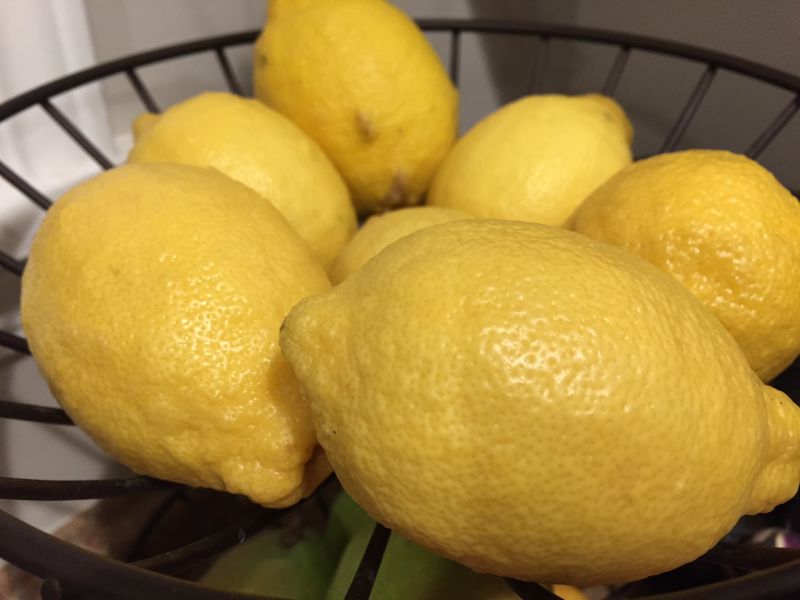
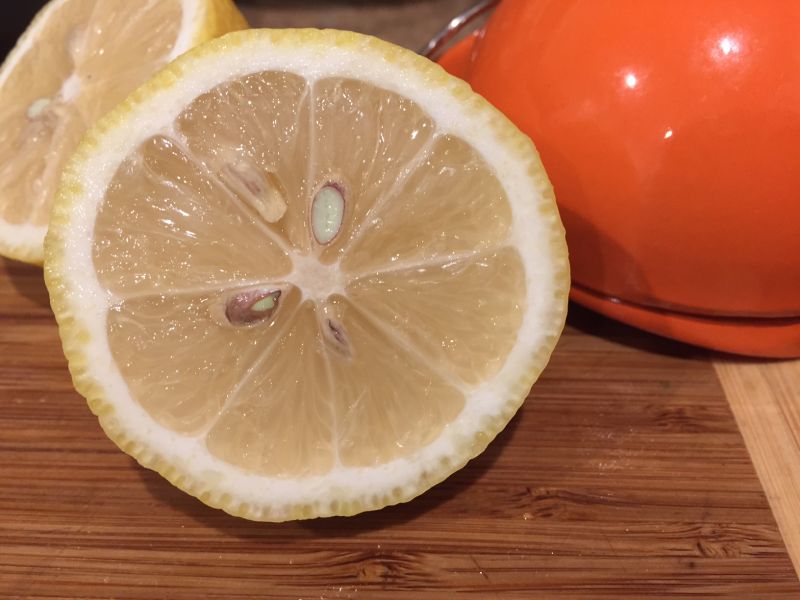
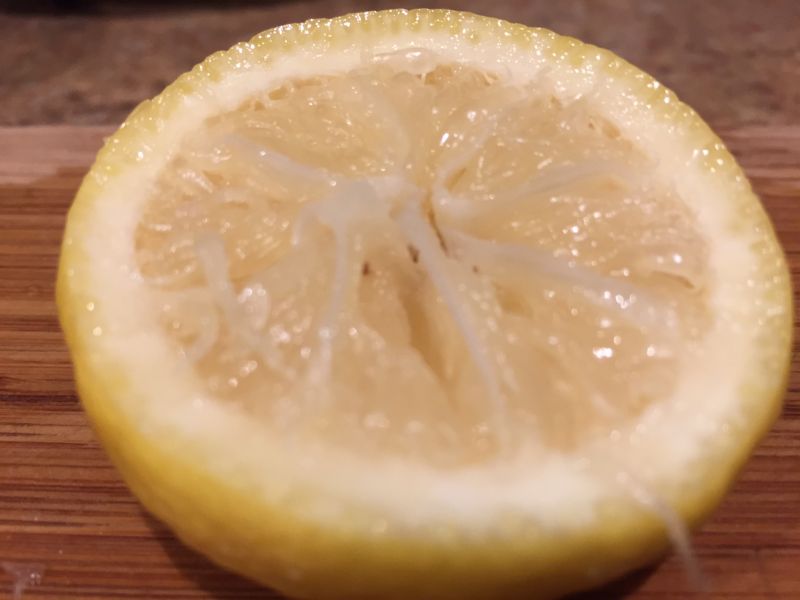
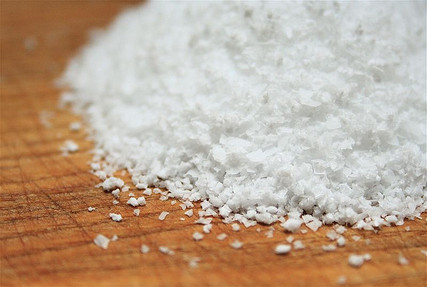


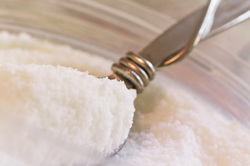
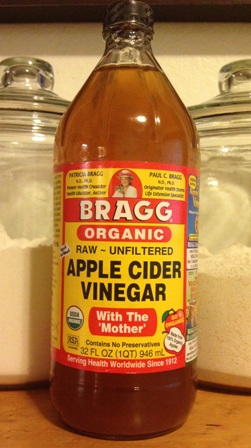





 RSS Feed
RSS Feed










